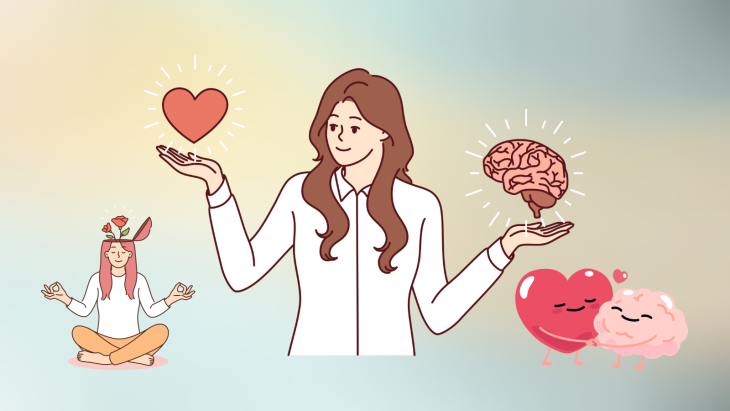Recent Posts
- Escapism. When is it healthy? When is it damaging?
- My parents are now in their 60s. How can I maintain a healthy relationship with them?
- Can we survive a long distance relationship? How do other people do it?
- Hobbies as an adult. Are they necessary?
- Looking at common beliefs on love and connection. Busting relationship myths.
Most Popular
My teen insists on taking a "mental health day." Is that necessary?

By the time your teen reaches young adulthood, they will have to face so many challenges and make numerous choices. Some of these challenges are within their emotional and mental development to decide upon, but some still need your parental guidance.
A 2022 study by the American College Health Association surveyed over 50,000 undergraduate college students and they found that 77% of them have experienced moderate to severe psychological distress that disrupt their daily lives. Meanwhile, recent statistics show a rising epidemic in mental health struggles among teens aged 12 to 18.
In this modern age, guiding your teens without being controlling may feel as delicate as walking on a tightrope, but it is possible.
Why is there a need for mental health breaks?
Every developmental milestone has its own challenges. Teens can go through the pressures of school work and meeting deadlines, preparing for big exams, and the demands of developing their identity in relation to their peers. These things can come with high levels of stress.
Stress takes a heavy toll as teens spend a huge amount of time and effort in their endeavors, while possibly neglecting self-care practices. Tiredness can lead to fatigue, unhealthy coping mechanisms can lead to anxiety and neglect of self-care can further add to these consequences.
How do you recognize if the teen is overwhelmed?
Sometimes the pressure becomes too much and you will notice your teen:
- Becoming more moody and irritable
- Expressing their worries more frequently
- Complaining more than usual
- Becoming suddenly clingy to a parent
- Experiencing bouts of “feeling sick” like having headaches or stomach aches more often
What are the benefits of taking mental health breaks?
Taking breaks has been shown to produce physical and mental benefits. It can:
- Reduce or prevent feelings of stress
- Keep performance up all through the day
- Increase energy levels
- Increase feeling of relatedness when there is social interactions during a break
Parents can guide their children by making sure that they take small breaks in between big tasks in order to maintain mental wellbeing.
How can parents incorporate mental health breaks in their teen’s daily routine?
- Come to an agreement with the teen about the importance of breaks and set regular break times all throughout the day.
- Set an alarm to remind both of you to take a break.
- Encourage the teen to create a schedule that includes how tasks are going to be distributed. Help the teen to make the schedule as realistic as possible. Include break times in the schedule.
- Encourage a more balanced lifestyle.
Adding activities that are done and enjoyed apart from school work might help teens blow some steam off. Encouraging time outdoors, being in nature, and learning and doing a hobby can help them see life outside of stressors.
These activities help teens detach from their work and defocus their mind towards more relaxing activities.
When was the last time the family spent quality time together? Maybe the whole family is experiencing stress for a long period already, and even a small vacation can bring back energy and positive feelings.
How can parents instill mental strength in teens?
Parents want their teens to grow to be well-adjusted and healthy adults. And the presence of difficult moments in a teen’s life may serve as a spark to develop their character.
Share with your teen your life experiences, especially those that taught you to go through a tough time. When they know that you underwent a similar hardship, it might bring you closer.
Be a source of encouragement when teens are going through tough times. Teach them how to take care of themselves and how to take control of their emotions and behavior. Encourage independence and accountability one step at a time.
Parents cannot protect their children from all the bad things that happen in life, but parents can prepare them to be proactive and to respond well to life’s challenges.
Having a hard time at this stage in your parenting is normal. Talking with a mental health expert or a family counselor might help you put things in perspective.
Also, check out rewarding medical careers in your area or discover top medical talent near you.








Comments